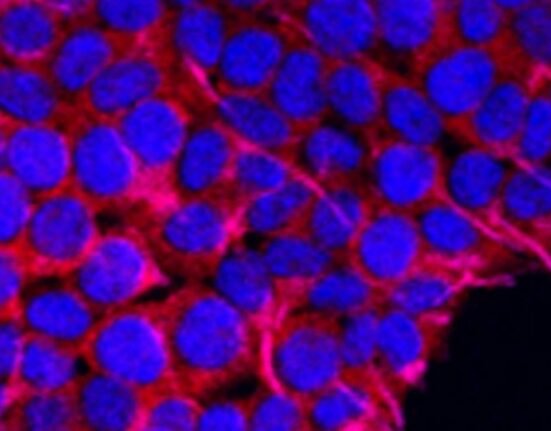HQ Team
August 13, 2025: Bayer and Kumquat Biosciences, a clinical-stage biotech, announced an exclusive global license and collaboration agreement worth $1.3 billion to develop and commercialize Kumquat’s KRAS G12D inhibitor.
Oncogenic driver mutations, such as KRAS mutations, are changes in the DNA of genes that drive the development and growth of cancer. KRAS mutations occur in nearly 25% of human cancers. Among these, the KRAS G12D variant is the most prevalent and oncogenic, yet it still lacks effective treatment options. KRAS G12D mutations are found in pancreatic, colorectal and lung cell cancers. 37 percent of pancreatic ductal adenocarcinoma (PDAC), 13 percent of colorectal cancer and 4 percent of non-small cell lung cancers suffer from these mutations with low survival rates. The identification of these mutations offers the opportunity to develop target-specific drugs.
Agreement terms
Under the terms of the agreement, Kumquat will receive the $1.3 billion, in upfront payments, clinical and commercial milestones, and additional tiered royalties on net sales. Kumquat also retains an exclusive option to negotiate for profit-loss sharing in the U.S.
Kumquat received FDA clearance for its investigational new drug (IND) for the KRAS G12D inhibitor in July 2025. Kumquat will initiate and complete the Phase Ia study, while Bayer will handle subsequent development and commercial activities.
Dominik Ruettinger, M.D., Ph.D., Global Head of Research and Early Development for Oncology at Bayer’s Pharmaceuticals Division, stated, “KRAS mutations are crucial for cancer development and can be targeted with specific therapies in a more selective manner. We look forward to exploring the investigational KRAS G12D inhibitor, which targets a highly relevant signaling pathway that promotes tumor growth and survival.”
This collaboration provides Kumquat with the financial resources to accelerate its broader clinical pipeline for long-term value.
KRAS variants
Kumquat, also has alliances with Eli Lilly and Takeda and is advancing multiple programs targeting the KRAS pathway. The timing of the IND clearance puts Kumquat behind the front-runners such as Revolution Medicines, which is planning to take its zoldonrasib into trial next year. Their important inhibitor trial plan is built on early-phase data in patients with pancreatic or non-small cell lung cancer (NSCLC). Amgen and Mirati Therapeutics’ earlier findings on targeting KRAS G12C has propelled biotech companies to work on other KRAS variants in recent years.
Kumquat received FDA clearance to study its drug candidate in humans last month.
This partnership complements Bayer’s precision oncology development portfolio, particularly in pancreatic, colorectal, and lung cancers.








